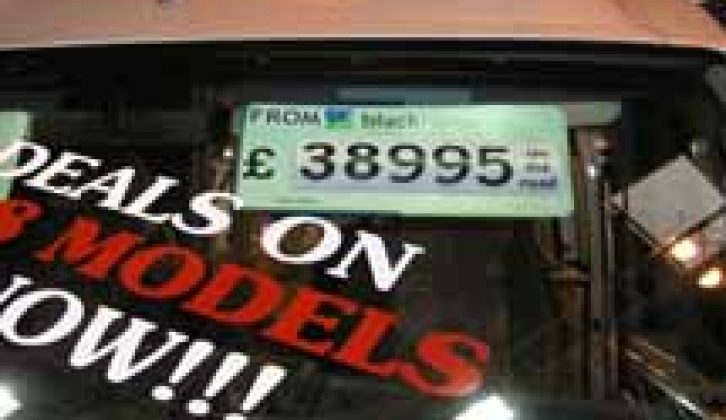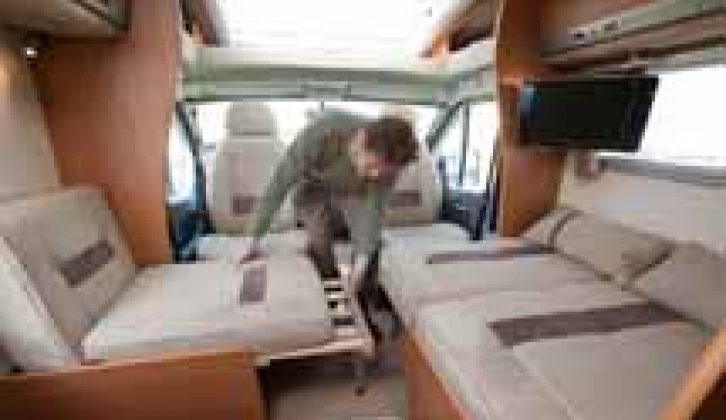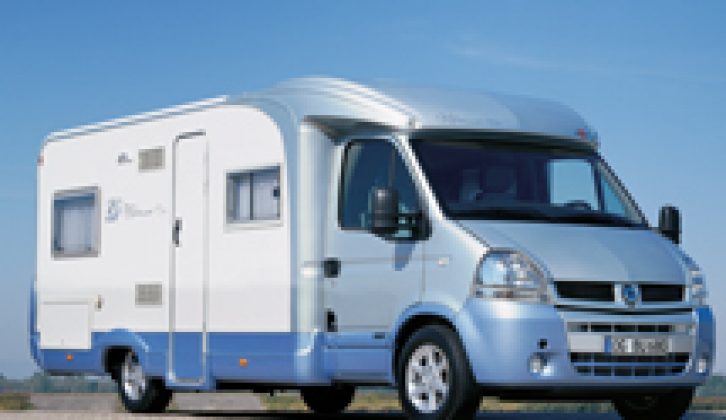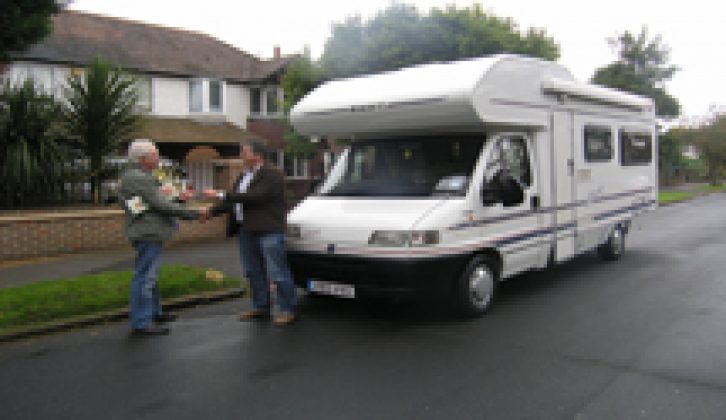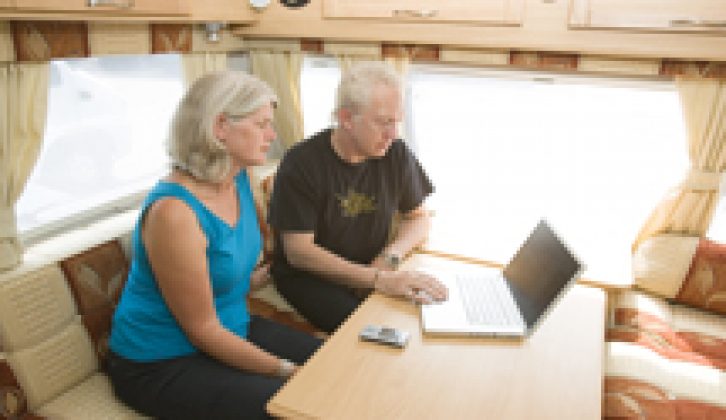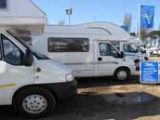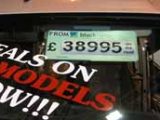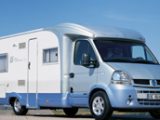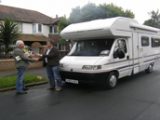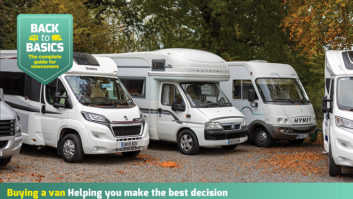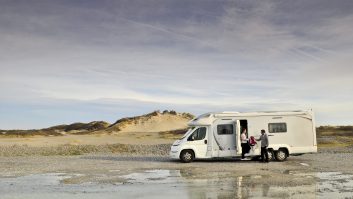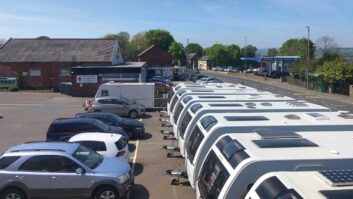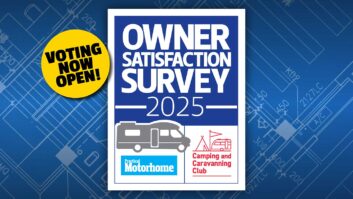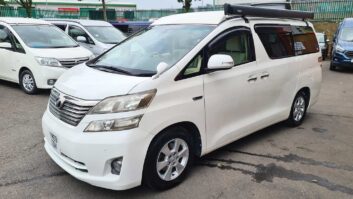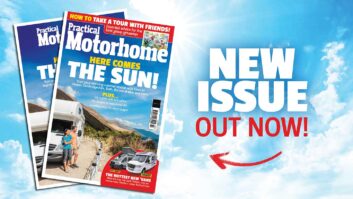Most of us know roughly what to look for when we’re buying a secondhand car, even if we wouldn’t consider ourselves an expert. But used motorhomes are more complex for a number of reasons, not least because there are so many layouts and designs for you to choose from. Don’t despair, though, because this page will ease you through the used-’van buying process.
Set a price
[tl:gallery index=1 size=215×129]Before you begin, make sure you set yourself a firm budget – and stick to it. It’s very tempting to just edge up over what you’d originally intended to pay, but be ruthless and, if you’ve budgeted correctly, a suitable vehicle will come up. If you have no knowledge of motorhomes, the best way to gain an idea of what you can get for your money is to trawl our classified pages, both in the back of the magazine and online before you view any vehicles. With many brands being sold in small numbers, dealers often have to estimate a vehicle’s worth and may not even know the original sale price. This gives buyers who have done their homework a real advantage.
Layout
[tl:gallery index=2 size=215×129]Along with the amount that you’re prepared to pay, you will, of course, also need to decide exactly what layout you want. Have a look at our guide in our Advice section online; it lists all of the most common layouts that you’ll find in ’vans on the market. You’ll probably have to be a bit more flexible than you would if you were buying new, as you won’t have such a wide range of vehicles at your disposal. But do stick to your guns if you have certain requirements, such as a fixed bed or two singles.
Base vehicles
[tl:gallery index=3 size=215×129]One other important aspect to consider is the type of vehicle on which your motorhome is based. Turbodiesel-engined varieties dominate the market. They bring no advantage in terms of fuel economy, but they do offer lots of torque at low revs, and better performance than standard diesel engines.
Petrol-engined models are less popular these days, but don’t dismiss them out of hand: they are cheaper to buy than diesels, quieter and perform well. Many secondhand ’vans have power steering and some have automatic gearboxes. And here’s a tip for bargain hunters: the best bargains you’ll find on the pre-owned market will be those motorhomes built on less commonly used base vehicles, such as the Renault Master (pictured, above).
Choose where to buy
As with buying a car or house, view as many motorhomes as you can to get a feel for what appeals to you. Larger dealerships are good in this respect, so visiting a few in a day, or over a weekend, is worthwhile provided that you don’t overload yourself with information. But where else can you buy? Here are the advantages and disadvantages of the main avenues open to you.
At a dealership

See as many different motorhomes as you can before making your decision; you’ll soon start to get a feel for what represents good value for money. Try to build a relationship with a local dealership, or at least one that’s not too far from home. That way, if problems arise or if you need some general maintenance work carried out, the cost of return visits to their premises shouldn’t be too hard on your wallet.
At a show
[tl:gallery index=4 size=215×129]A number of regional motorhome shows take place around the country throughout the year and these are attended by dealers and specialist importers. The shows provide a great chance to browse through a vast range of pre-owned motorhomes, and dealers will be able to tell you what else they have in stock so that you can decide whether it’s worth a visit to their premises. If you buy at a show, you may also be able to negotiate a good discount.
Privately
[tl:gallery index=5 size=215×129]Private buyers will get better value, but for them it is always a case of ‘buyer beware’ as there are few legal safeguards. You must be sure of what you are buying, unless the ’van still has a valid warranty and the buyer can prove this. There are companies that carry out a mechanical and habitation inspection, and check if there are any outstanding finance issues.
At an auction
[tl:gallery index=6 size=215×129]You can find superb bargains at an auction, but you must know exactly what you are looking for and have experience of spotting faults. You will have a limited time in which to inspect the vehicle before bidding, and afterwards there are only a couple of hours to bring
to light any major faults which may not have been described in the sale details. Also, you will need to provide the cash for your purchase within a couple of days of the sale, so you will need to have your finance arranged beforehand.
Online
[tl:gallery index=7 size=215×129]This is one of the best ways to find a good deal. Before buying online, or placing a bid on an auction site such as eBay, make sure you’ve researched your prices thoroughly so that you don’t end up paying over the odds. Set yourself a clear limit, too, and stick to it – it’s very easy to get carried away when you’re bidding. Finally, be very suspicious of anything that seems too good to be true – it probably is.
Related story, October 10, 2012.

